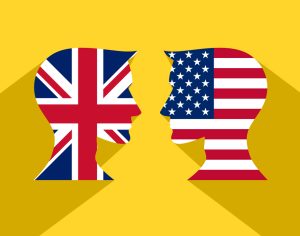Not many people are aware of this fact, but the United Kingdom has a unilateral Free Trade Agreement (FTA) with over 60 countries. It’s called the Developing Countries Trading Scheme (DCTS) and it became law in June 2023. The DCTS replaced the UK’s Generalised Scheme of Preferences (GSP).
It is a simpler and more generous preferential trading platform which has been designed to boost trade with developing countries. It is hoped that these countries will benefit internally and generate more wealth thanks to this agreement.
Many of these countries are deemed to be low-income nations by the World Bank. But thanks to this new agreement, they can now send many items to the UK market without having to pay duties or face restrictions on quotas. Most of these nations are found in the Pacific, Middle East, Africa and Central Asia.
In return, this scheme offers UK companies significant reductions on duty. And here’s how?
Benefits for British importers and consumers
By reducing tariffs, simplifying trade laws, and removing barriers for developing countries, the DCTS also reduces the cost of imports for consumers and businesses in the UK. This scheme gives UK companies access to thousands of items from across the world at discounted rates, which ultimately benefits customers through lower prices.
However, tariff-free entry to the UK is not guaranteed for all imported products. Tariffs may differ depending on the commodity. The DCTS includes a preference tier for the nation of origin and you can check out the details on the Government website by clicking here.
Here is a brief breakdown of savings opportunities:
- Import tariffs on 99.8% of items (excluding firearms and ammunition) will be zero for those countries eligible for ‘Comprehensive Preferences.’
- Import tariffs from ‘Enhanced Preference’ countries are zero for 92% of all product categories.
- Only imports from India and Indonesia are subject to duties of any kind, whereas exporters in ‘Standard Preference’ nations are eligible for zero tariffs on 65% of product lines.
This agreement does not provide any preferential treatment for China.
Anyone keen to know more about this topic can access the ‘DCTS Opportunity Visualisation Tool’ by clicking here. This tool allows users to choose a nation, and then search for a particular product to find information about import duties and other trade-related costs.
‘Country of Origin’
To benefit from free trade, you need to fully understand how ‘Rules of Origin’ works. These specify which imports are considered as being eligible for preferential tariffs. An item is said to ‘originate’ from a country where it is either manufactured, or where significant value is added to it above the bare minimum.
There are ‘minimum processing criteria’ and ‘product-specific rules’ (PSRs) that apply. For example: A gown woven in India, using Chinese silk, is regarded as an Indian product. However, if the gown is manufactured in China and sent to India, before being sold and exported to the UK, it is considered to have Chinese origin.
All importers need to examine these laws closely to discover a product’s ‘nation of origin.’ Only then will the importer know which tariff is relevant. Business owners can always contact a customs expert for advice, or enrol in a Rules of Origin course. This is an extremely complex topic.
What to do
When requested, importers must provide the necessary documentation of origin in order to receive benefits under the DCTS. It’s important to remember that it is not the responsibility of UK importers to verify the country of origin for products exported from DCTS nations.
But they still have responsibilities. For example, the UK importer must verify that they are eligible to get preferences for imported products. There are three ways to prove origin: 1) By signing an origin declaration; 2) Applying the concept of ‘importers knowledge’ or 3) Signing a ‘Form A’.
If there are any doubts, you should always speak to a customs expert. Alternatively, you can enrol on a course to learn about the laws of origin, or study official documents published by HMRC.
Conclusion
It is worthwhile for all importers and exporters to check how the new DCTS rules may affect their business. It is especially important for those who import goods from specific countries in Africa, Middle East, Central Asia or certain islands in the Pacific.
Determine the appropriate rules of origin and check out HMRC’s visualisation tool. Locate an expert to help you arrange the necessary processes and procedures regarding Rules of Origin. This will help you to maximise your knowledge, and minimise your tariffs, regarding the UK’s latest international trading agreement.
Share via:








































